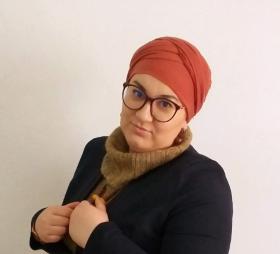
Insights from LocWorld50
7 de November de 2023
Security and Quality Standards for the Self-Employed Translator
15 de February de 2024
Insights from LocWorld50
7 de November de 2023
Security and Quality Standards for the Self-Employed Translator
15 de February de 2024BLISS Talk
Going Above and Beyond: Crafting Tailored Localization Solutions

By Gabriela Kouahla (BEYOND WORDS LINGUISTIC SERVICES)
Localization services have become indispensable in our increasingly globalized world. They enable businesses to connect with customers in various regions, ensuring that their products and content are not just translated but adapted to suit the unique cultural and linguistic nuances of different markets. While offering individual services is a valuable approach, it's time to think beyond services and offer complete localization solutions. Each client has distinct needs, and a tailored solution can be the key to unlocking their full potential. In this article, we'll explore why going beyond services is crucial and provide examples to illustrate this concept. Additionally, we will delve into the world of research and discuss why researchers, like companies, need more than just linguistic services for localization. We will present a case study highlighting the importance of a holistic approach to localization.
I. Going Beyond Services: Tailored Localization Solutions
Understanding the Diverse Needs of Clients
One size does not fit all when it comes to localization. Every client is unique, with specific requirements, goals, and challenges. By offering complete localization solutions, providers can take a comprehensive approach to understand their clients and create tailored strategies. For example, a multinational e-commerce company aiming to expand in Asia may require not only language translation but also adjustments to its user interface, payment gateways, and product offerings to cater to local preferences.
Combining Various Services into One Solution
Complete localization solutions encompass a range of services, including translation, cultural adaptation, multimedia localization, and testing. By offering these services as a package, clients can save time and effort in managing multiple vendors. Moreover, integrating various components of the localization process can lead to more consistent and cohesive results.
A Real-World Example: The Gaming Industry
The gaming industry is a prime example of where complete localization solutions can make a significant impact. A game developer creating a new title for global release may require not only translation of in-game text but also localization of graphics, audio, and even gameplay elements. To successfully reach diverse audiences, a tailored approach is essential. A complete solution ensures that the game is not only playable but also enjoyable for players around the world.
II. The "Mindset" Approach
Whether working with companies or particulars (researchers), adopting the right mindset is crucial when providing complete localization solutions. This mindset involves a deep understanding of the client's needs, an ability to think beyond mere translation, and a commitment to delivering results.
Embracing Flexibility
One of the key tenets of the "mindset" approach is flexibility. Providers of complete localization solutions should be ready to pivot, adapt, and innovate according to the unique challenges and objectives of each client. This flexibility allows for tailored solutions that genuinely meet the needs of the client.
Staying Ahead of Trends
The field of localization is constantly evolving, with new technologies, tools, and methods emerging regularly. Staying up-to-date with these trends and proactively integrating them into the solution can lead to more efficient and effective localization. This proactive approach can significantly benefit clients.
Ensuring Measurable Results
Complete localization solutions must produce measurable results. Whether it's improved customer engagement, increased sales, or enhanced research dissemination, the success of the solution should be quantifiable. This ensures that both the provider and the client can assess the impact of the localization efforts.
III. Case Study: Maximizing Research Impact
Researchers invest months and even years of effort into their work, and their findings are valuable not only to their academic peers but also to a broader audience. To effectively communicate their research, they must consider localization, going beyond mere linguistic services. Let's delve into the world of researchers and discuss why a comprehensive approach is necessary.
While linguistic services are essential for researchers, they are just the tip of the iceberg. The process of translating research papers or studies is not limited to converting words from one language to another. Researchers must ensure that the content is comprehensible, relevant, and contextually adapted for various audiences.
To illustrate the effectiveness of the "mindset" approach in the realm of research, let's consider a case study involving a group of researchers in the field of environmental science. This team had conducted groundbreaking research on climate change and its effects on marine ecosystems. They aimed to publish their findings in a prestigious journal and present their work at a global environmental conference.
Challenge:
The research team faced the challenge of adapting their complex scientific findings for two distinct audiences: the journal editors and the conference attendees. They also needed to ensure that their research was accessible to a broader audience, including policymakers, educators, and the general public.
Solution:
A provider of complete localization solutions was engaged to address these challenges. The provider worked closely with the researchers to understand their goals and the unique expectations of each audience. They employed a holistic approach that encompassed not only linguistic services but also:
√ Formatting and structuring the research paper to adhere to the journal's guidelines.
√ Creating a compelling and visually appealing presentation for the conference.
√ Developing a simplified, accessible summary of the research for a general audience.
√ Assisting with copyright issues and permissions for images and data.
√ Offering guidance on how to engage with editors and reviewers.
Results:
The researchers successfully published their work in the journal and received positive feedback from the peer-review process. Their presentation at the environmental conference was well-received, and they were able to engage with fellow researchers and potential collaborators. The simplified research summary garnered attention from the general public and educators, leading to increased awareness of climate change issues.
The holistic approach not only maximized the impact of the research but also saved the researchers time and effort by handling various aspects of the localization process. It underscored the importance of complete localization solutions for researchers seeking to disseminate their findings effectively.
Conclusion
In a world that continues to grow more interconnected, the need for localization services has never been more crucial. However, to truly serve the diverse needs of clients, going beyond services and offering complete localization solutions is the way forward. Whether working with multinational companies or researchers, the "mindset" approach, rooted in understanding, flexibility, and measurable results, is the key to success. By adopting this approach, localization providers can unlock the potential of their clients, ensuring that their content and research resonate with audiences worldwide.
Gabriela Kouahla is a certified translator, localization specialist, and scientific proofreader. With over a decade of experience, she's a bilingual translator (English to French>>Romanian) and a member of the American Translators Association. As the sole certified French<>Romanian translator covering North Africa, Gabriela founded the first Algeria-based Localization Agency for Researchers, earning recognition as a localization influencer by Nimdzi. She's also a LocLunch™ ambassador for Algeria.
Gabriela is a scientific linguistic consultant for the LabSTIC research lab in Algeria and serves on the editorial board of the International Journal of Informatics and Applied Mathematics. Beyond her professional life, she's a mother of two trilingual children and an advocate for cultural diversity and multilingualism.
Through her agency, BEYOND WORDS LINGUISTIC SERVICES, Gabriela is dedicated to creating a quality linguistic bridge between Africa, Europe and the World, fostering global communication and understanding.
